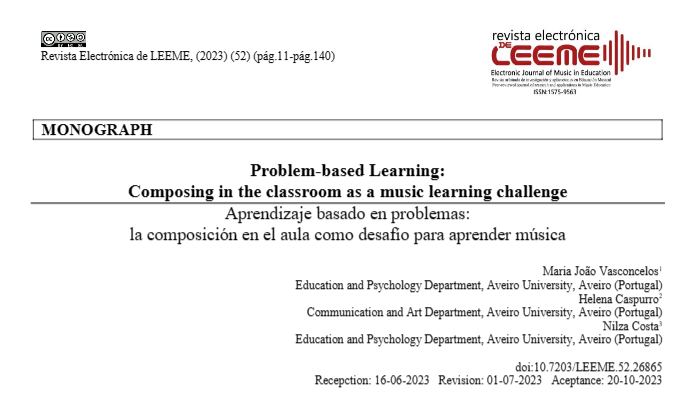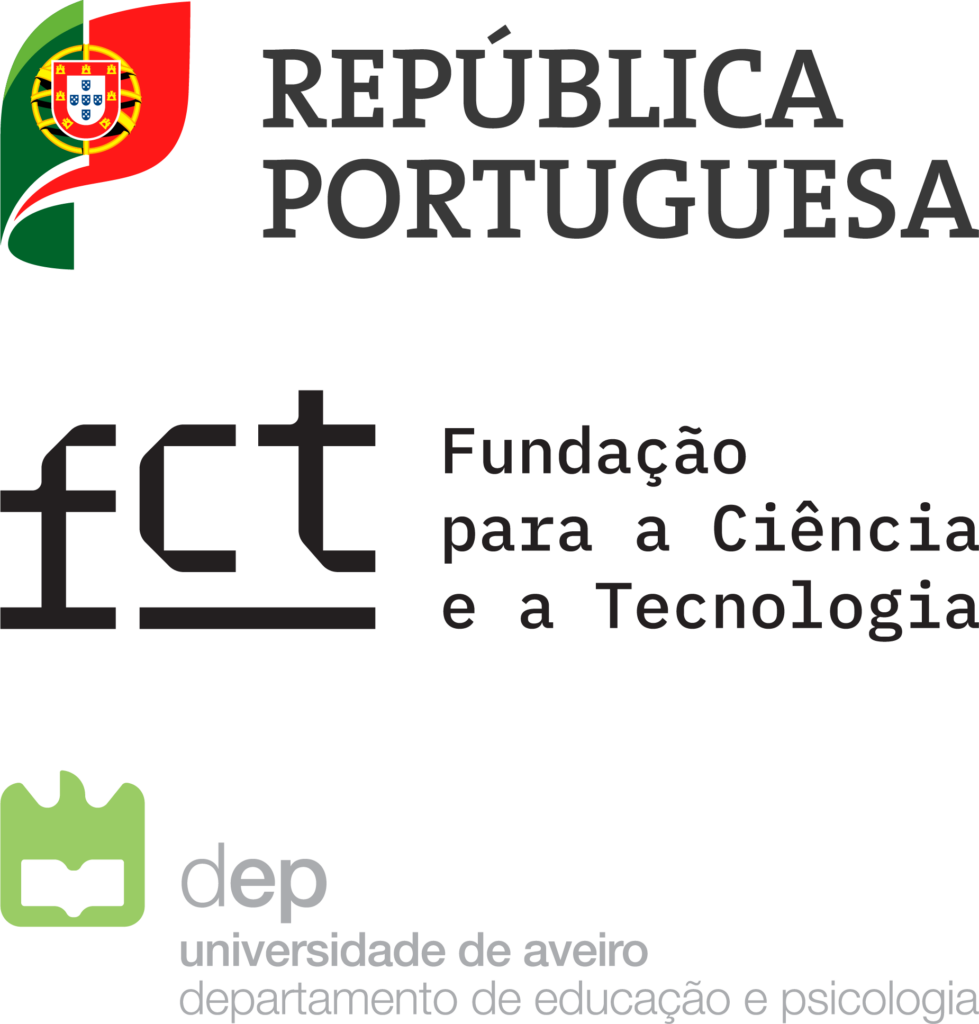Maria João Vasconcelos (CIDTFF), Helena Caspurro & Nilza Costa (CIDTFF) | Electronic Journal of Music in Education – Revista Electrónica de LEEME, 52, pp. 111-140
Abstract:
Problem-based Learning (PBL), one of the most widespread student-centered teaching models, prioritizes cooperative and challenge-based learning, with teachers acting as “facilitators”, and formative assessment processes. In music, the search for ways to enhance the (co)construction of learning and complementary responses to expository methods resonates with composition centered proposals, with some incorporated into Music Education curricula as in the Portuguese case. What characterizes PBL, what data exists on its application and what links can we establish with musical learning to systematize its implementation and study through composition reflect the questions motivating this literature review. Thinking in sound, thinking in music, holistic learning, creative thinking, provide the constructs and references through which we discuss the foundations of this model. The summaries, in turn, produce the following conclusions: the study of PBL generates both benefits and constraints, and research on its theoretical principles continues to be far more abundant; composition in itself represents a problem-solving process, and musical learning through composition, when viewed according to the aforementioned constructs, can take shape in a way that aligns with PBL; and, PBL does work as a guiding model for musical and educational planning, action and research, particularly through composition.
Keywords: Problem-based Learning; Cooperative Learning; Music Education; Musical Composition.
pdf em inglês | pdf em espanhol
– – – – –
Referência:
Vasconcelos, M. J., Caspurro, H., & Costa, N. (2023). Problem-based Learning: Composing in the classroom as a music learning challenge. Electronic Journal of Music in Education – Revista Electrónica de LEEME, 52, 111-140. https://ojs.uv.es/index.php/LEEME/article/view/26865





